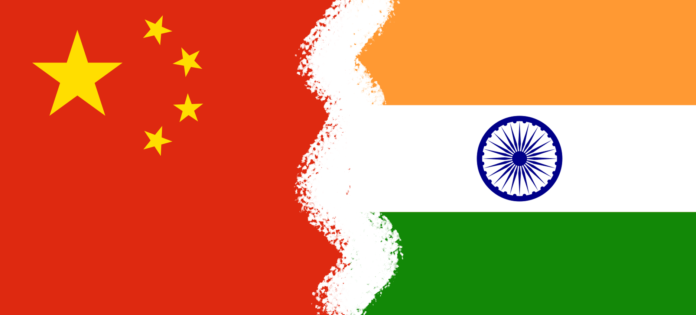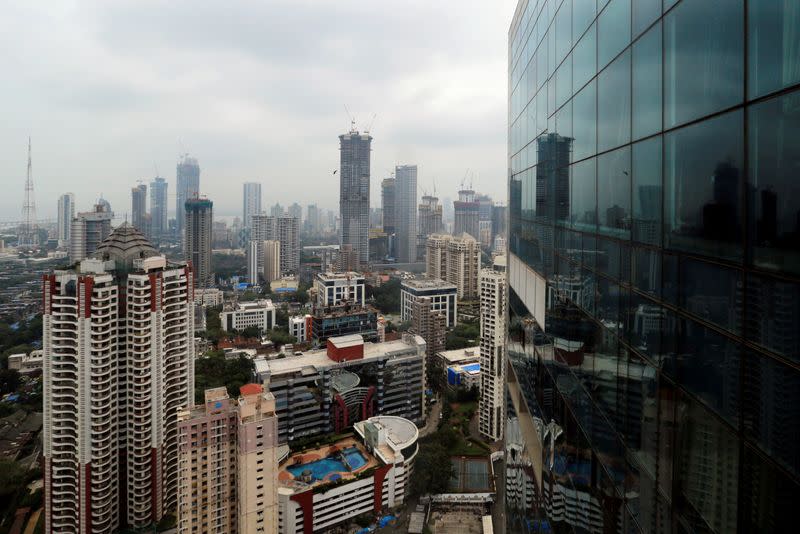Two of the most powerful nations going at it in the end times, Moab & Elam. Trade wars lead to real wars. Not new, tension between them has existed for a long time.
- Matthew 24:7 For nation shall rise against nation, and kingdom against kingdom: and there shall be famines, and pestilences, and earthquakes, in divers places.
ARTICLES
India Opens Bridge in Himalayas Setting Stage for China Face-Off
Chinese investors flummoxed by India’s new foreign investment rules
—
Chinese investors flummoxed by India’s new foreign investment rules
By Aditya Kalra and Aditi Shah
NEW DELHI (Reuters) – India’s plan to screen foreign direct investments from neighbouring countries has Chinese firms concerned that such scrutiny will affect their projects and delay deals in one of Asia’s most lucrative investment markets.
The tougher rules were not a surprise, as other countries are also on guard against fire sales of corporate assets during the coronavirus outbreak, but that they apply to investments from countries that share a land border with India raised eyebrows.
Unlike neighbouring Pakistan, Bangladesh, Myanmar, Nepal and Bhutan, China has major investments in India.
Chinese firms existing and planned investments in India stand at more than $26 billion, research group Brookings said in March, with the world’s second-most populous nation emerging as a key market for everything from automobiles to digital tech.
Chinese automakers Great Wall Motor and SAIC unit MG Motor have bet big on India while its tech giants Tencent and Alibaba have fuelled growth of Indian digital payments firm Paytm, grocer BigBasket and ride-hailing giant Ola.
The new rules are to curb “opportunistic” takeovers during the coronavirus outbreak that has hit Indian businesses, but government sources have said they will also apply to greenfield investments. China has called the rules “discriminatory”.
Some Chinese investors have already “put things on hold” as they await further clarity on the rules, said Vaibhav Kakkar of Indian law firm L&L Partners.
“Every Chinese investor is worried, any government approval could take months,” said Kakkar, who advises several foreign companies and investors.
This will affect India’s digital businesses who are in dire need of funds to tide over the coronavirus crisis, he said.
MG Motor and Great Wall are concerned about the policy and its possible implications on future investment plans, according to four sources familiar with the thinking.
While MG started selling cars in India last year, it is yet to fully invest the $650 million it has committed to India. Great Wall is yet to start production in India but said in February it plans to invest $1 billion in the coming years.
“Sentiment wise it’s not been taken well but it will not change the investment plans for now,” said one of the sources who works closely with Chinese automakers in India.
MG Motor and Great Wall did not respond to a request for comment.
Indian craft beer maker Bira’s roughly $50 million of bridge financing round that involved Chinese investors could be delayed due to the new rules, said an industry source with direct knowledge. Bira did not respond to a request for comment.
ANTI-CHINA SENTIMENT
India’s industries ministry is reviewing several queries received since the policy was made public over the weekend, but it has not been decided if further clarifications will be issued, a government official told Reuters.
The new rules govern entities located in a country that shares a land border with India. Such foreign direct investments will now require government approval, meaning they can’t go through a so-called automatic route, and will also apply on investments from Hong Kong, Reuters has reported.
The policy risks souring relations between the two nations and furthering anti-China sentiment already festering in India before the coronavirus outbreak.
Companies regularly battle consumer perception that Chinese goods are of inferior quality and those views have only worsened as the coronavirus epidemic spread from China around the world.
Welcoming the investment rules, Ashwani Mahajan of the Swadeshi Jagran Manch, a Hindu nationalist group close to India’s ruling party, said domestic startups should not rely on any Chinese funding as there was enough local capital available.
“We have even more reasons to oppose China now there is a general feeling against China, and secondly we have been saying Chinese goods are of bad quality,” said Mahajan.
Federal think tank Niti Aayog’s chief executive Amitabh Kant defended the screening of investments and rejected the notion it was targeting China.
“Nowhere have we said that we are going to constrain China’s investment. They have been a big player in India’s start-up story,” Kant told the CNBC TV18 channel.
(Additional reporting by Aftab Ahmed in New Delhi and Nivedita Bhattacharjee in Bengaluru; Editing by Jacqueline Wong)
(Bloomberg) — India has opened a new all-weather access in a disputed part of its border with China to enable faster movement of troops and artillery, another potential irritant in relations between the two nuclear-armed neighbors.
The new bridge, which can take 40 tons of weight, was built in Arunachal Pradesh in India’s remote northeast, a region that’s claimed by China and near the scene of previous clashes. Border intrusions have risen 50% in 2019 compared to the previous year, people with knowledge of the matter said.
”That part of the border has always had a tendency to friction point between India and China. Lack of reliable and all weather connectivity was vulnerability,” said Nitin Gokhale, a New Delhi-based strategic affairs expert. “The new bridge and improved road overcomes that and ensures uninterrupted supply to troops.”
The new access along the border with China comes amid heightened tensions between the two nations after Beijing accused India of blocking its companies in the South Asian nation after New Delhi tightened laws for foreign investors from acquiring local firms. The bridge is located in a region that witnessed a months-long military standoff in 2017 over the Doklam plateau, claimed by China and Bhutan, India’s ally. It was one of the most serious flare-ups since China won a border war with India in 1962.
China’s Ministry of Foreign Affairs did not respond to a message requesting comment.
India claims the Chinese army violated the 3,488 kilometer (2,167 miles) long un-demarcated border, parts of which are disputed, over 600 times, the people said, asking not to be identified as the matter is not public.
“India and China have different perceptions of the border,” Indian Army spokesman Aman Anand said on Thursday. “Perceived transgressions are result of the perceived boundary.”
Under Prime Minister Narendra Modi, India is ramping up its infrastructure along the border, which it says isn’t aimed at any particular country, but rather the development of remote border areas. It has completed 74 strategic roads along the eastern border, with plans afoot to finish 20 more by next year, the people said. It will reduce time taken to move and material by half and help 431 villages that lie across the region during the Covid-19 outbreak.
India tweaked its law on foreign investment by making it mandatory for companies from countries that share a land border to acquire local firms only after seeking an approval from the government. The move, which cuts the risk of opportunistic takeovers as the coronavirus outbreak drives down valuations of Indian companies, had so far applied only to FDI from Bangladesh and Pakistan. India shares its land border with seven countries, including China.
The new bridge opened by the India also strides one of the main access routes of the Chinese Army into India from Tibet.


